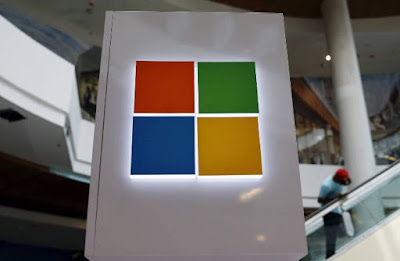With the world growing more concerned about attacks by militant
groups on civilians, Microsoft on Friday outlined new policies to crack
down what it called “terrorist content” on some of its consumer
services.
In a blog post, the company said it would ban what it
called “terrorist content” on some services such as gaming tool Xbox
Live, the consumer version of its Outlook email service, and its
consumer documents-sharing service.
But for its search engine
Bing, Microsoft cited free expression and said it would remove links
only when that “is required of search providers under local law.”
Initially,
Microsoft will rely on consumers to report objectionable content. The
company also said it would fund research of a tool that scans content
and flags images, audio and video.
“We will consider terrorist
content to be material posted by or in support of organizations included
on the Consolidated United Nations Security Council Sanctions List that
depicts graphic violence, encourages violent action, endorses a
terrorist organization or its acts, or encourages people to join such
groups,” the blog post said.
The steps illustrate the tough predicament many companies face balancing public safety with individual rights.
The issue came to the fore after Apple and the U.S. government
clashed over whether federal authorities could force Apple to create
software to unlock a phone used by a shooter in the San Bernardino
attacks last year.
Ultimately, the government paid a third party to unlock the phone.
“The
events of the past few months are a strong reminder that the Internet
can be used for the worst reasons imaginable,” Microsoft said in its
post.
Microsoft said users can use an online form to recommend removal of content.
“Use
this Web form to report content posted by or in support of a terrorist
organization that depicts graphic violence, encourages violent action,
endorses a terrorist organization or its acts, or encourages people to
join such groups,” the instructions read.
Microsoft said it would
provide information on how to counter negative content, a policy adopted
by another technology giant: Facebook.
The social-media service
this year announced a tool it calls “counter speech,” encouraging
activists to counter extremist views with posts promoting tolerance.
Last year, Facebook updated its guidelines to prohibit advocacy of
“terrorist activity, organized criminal activity or promoting hate.”
Social media site Twitter suspended 125,000 accounts, most of which it believed were linked to the militant Islamic State group.

Comments
Post a Comment